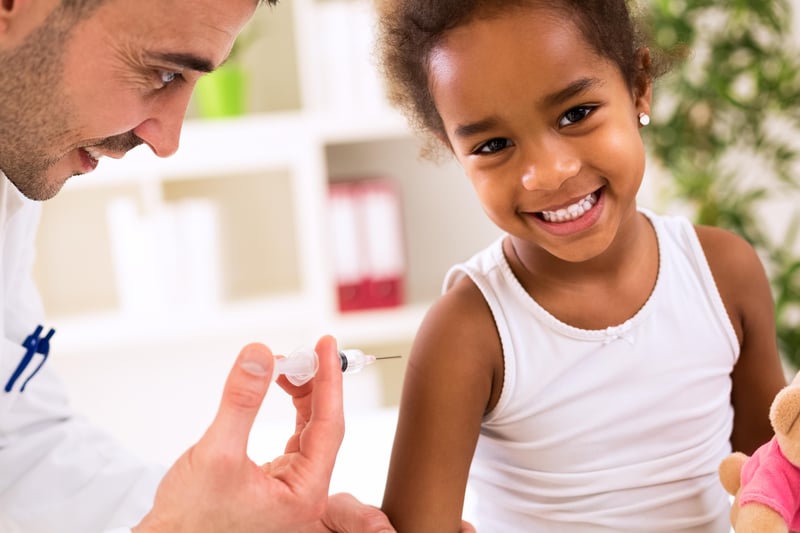Get Healthy!

- By Cara Murez HealthDay Reporter
- Posted April 22, 2022
Childhood Vaccination Rates Slipped During Pandemic: CDC
Many kindergartners fell behind on their childhood vaccinations during the pandemic, U.S. health officials warned Thursday.
The drop has not been precipitous: About 94% of kindergarteners had their required vaccines during the 2020-2021 school year, a drop of about one percentage point and just below the 95% vaccination target, the U.S. Centers for Disease Control and Prevention said in a new report.
"This means there are 35,000 more children in the United States during this time period without documentation of complete vaccination against common diseases," Dr. Georgina Peacock, acting director of the CDC's immunization services division, said during a media briefing on Thursday, The New York Times reported. "This is further evidence of how pandemic-related disruptions to education and health care could have lingering consequences for children."
The numbers of children missing vaccines may even be higher, since there were 400,000 children who had been expected to start school but did not.
Why the drop in shots? It could be that families skipped routine pediatrician visits during the pandemic, an easing of immunization requirements for remote school, heavy demands on school nurses, or more evidence of a backlash against the COVID-19 vaccine, CDC scientists suggested.
"There's a greater proportion of parents who are questioning routine vaccines," Dr. Jason Terk, a pediatrician practicing in a suburb of Dallas who also acts as a spokesman for the American Academy of Pediatrics, told the Times.
"The experience of the pandemic, and the agenda-driven disinformation that has been pushed out relative to COVID vaccines fed the fire of distrust and skepticism that is really sort of the new pandemic of hesitancy for routine vaccines," Terk added.
Some states saw bigger drops in childhood vaccination rates than others in the report, published April 22 in the CDC publication Morbidity and Mortality Weekly Report.
Nationally, the vaccination rate was slightly below 94% for the measles, mumps and rubella (MMR) vaccine; the diphtheria, tetanus and acellular pertussis (DTaP) vaccine; and for the varicella vaccine (chickenpox), the CDC report found.
But Idaho had only 86.5% coverage of the MMR vaccine, while Maryland's rates dropped 10%. Wisconsin, Georgia, Wyoming and Kentucky all had rates of decline of about 5%. Virginia, Kansas and Alabama were among a small number of states that reported higher levels of the MMR vaccine. The United States nearly lost its status as a country that had eliminated measles in 2019, when the country experienced a high number of measles outbreaks in communities where vaccination levels had slumped.
Some of the decline may be due to reduced staffing and difficulty collecting information, which could have artificially lowered the numbers in some places, the researchers noted.
The numbers were based on counts provided by federally funded immunization programs that work with schools and local education departments. National coverage estimates from this report include 47 of the 50 states, plus Washington, D.C. There was no evidence of more families seeking vaccine exemptions.
The CDC expressed hope that the return of in-person schooling would prompt parents to catch up on their children's routine shots, and the agency encouraged schools and doctors' offices to send reminders to families.
Dr. Gary Kirkilas, a pediatrician in Phoenix, Ariz., who cares for patients whose families are often poor or homeless, noted that some families have become more resistant to vaccines than they had once been.
"All the rumblings about vaccines for kids and the misinformation that was going on at the time - that sort of amplified that particular segment of families, where 'I'm distrustful of the flu vaccine and then I'm also distrustful of the COVID vaccine and maybe I'm starting to be distrustful of vaccines in general,'" Kirkilas told the Times.
More information
The American Academy of Pediatrics has more on childhood immunizations.
SOURCE: The New York Times





